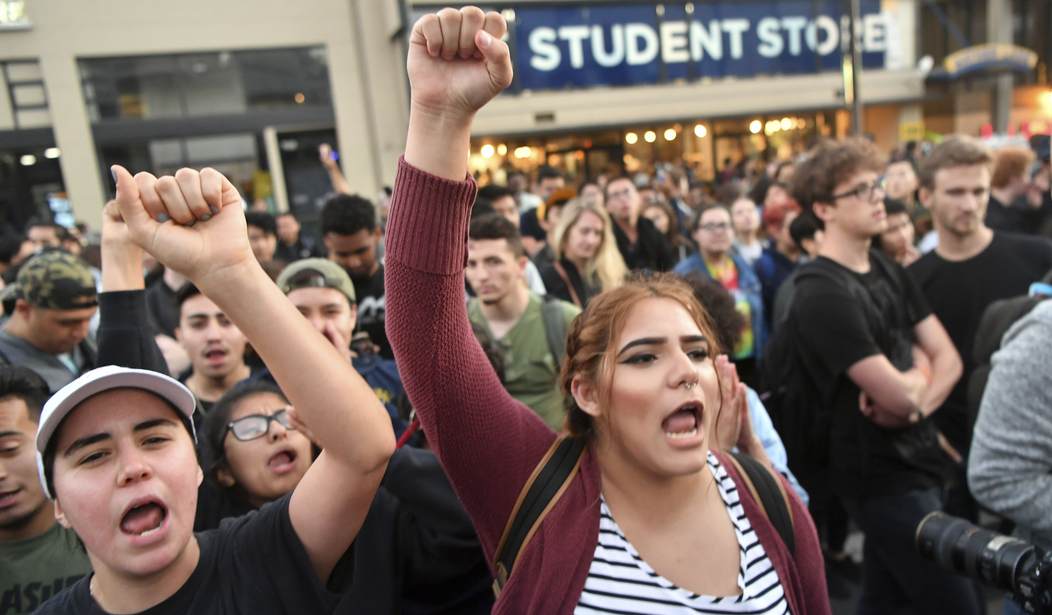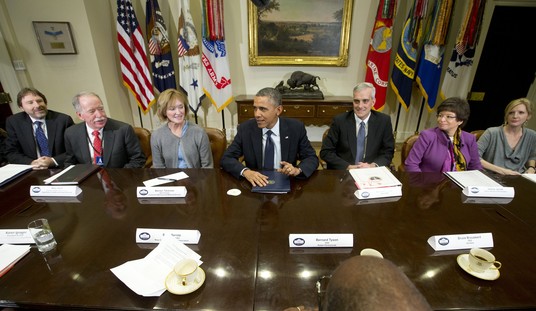A new study out of Finland set about creating a psychological assessment to identify those with woke beliefs. The study also found that those who hold such beliefs are more likely to report being anxious or depressed. Here's how the study's author, Oskari Lahtinen, described her own research.
“While critical social justice (or intersectional or ‘woke’) discourse draws mainly from dynamics within American society it has now surfaced in other Western countries as well. The arrival of a critical social justice (often called ‘woke’) discourse sparked much debate in Finnish media in the last couple of years.”
“This debate was largely data-free and it could thus be considered a worthwhile question to study how prevalent these attitudes are. No reliable and valid instrument existed prior to the study to assess the extent and prevalence of these attitudes in different populations, so I set out to develop one.”
This eventually led to the creation of an assessment test called the Critical Social Justice Attitude Scale which included seven questions:
- “If white people have on average a higher level of income than black people, it is because of racism.”
- “University reading lists should include fewer white or European authors.”
- “Microaggressions should be challenged often and actively.”
- “Trans* women who compete with women in sports are not helping women’s rights.” (reverse scored)
- “We don’t need to talk more about the color of people’s skin.”
- “A white person cannot understand how a black person feels equally well as another black person.”
- “A member of a privileged group can adopt features or cultural elements of a less privileged group.” (reverse scored)
Having created this assessment, Lahtinen was then able to gather some data. She found that wokeness was not terribly popular in Finland, though it was much more popular with women than with men: "Three out of five women view ‘woke’ ideas positively, but only one out of seven men.” But the most significant finding was the connection to anxiety and depression.
Lahtinen found a correlation between higher agreement with critical social justice attitudes and increased reports of anxiety and depression. Agreement with the statement “If white people have on average a higher income than black people, it is because of racism” exhibited the largest positive correlation with anxiety and depression, and the largest negative correlation with happiness.
However, these associations were more strongly correlated with participants’ political orientation than with critical social justice attitudes per se. Specifically, being on the political left was more predictive of lower mental well-being than high critical social justice scores alone. This suggests that the link between critical social justice attitudes and mental health is complex and may be mediated by broader political and ideological beliefs.
Regular readers may recall this isn't the first time this connection has been discussed. In fact, a year ago Jonathan Haidt and others were discussing the fact that liberal girls seem to have had the most serious mental health problems over the past several years. Haidt has connected the general trend to the adoption of smart phones which, starting around 2012, meant that most teens had social media with them all day every day. Nevertheless, the research indicates that liberal girls fared much worse that liberal boys or conservative girls.
Matt Yglesias put forward a suggestion on this point that while the decline in mental health doesn't seem to be driven by specific political issues such as who is president or which party controls congress, there may be a connection to a more general attitude which has become dominant on the progressive left:
I think the discussion around gender and the role of social media is an important one. But I also don’t believe that liberal boys are experiencing more depression than conservative girls because they are disproportionately hung up on Instagram-induced body image issues — I think there’s also something specific to politics going on.
Some of it might be selection effect, with progressive politics becoming a more congenial home for people who are miserable. But I think some of it is poor behavior by adult progressives, many of whom now valorize depressive affect as a sign of political commitment.
As Yglesias sees it, the messages adopted by many on the far left are directly contrary to the messages behavioral therapists use to help pull people out of depression and anxiety.
Life is complicated, and this is difficult. But for a very wide range of problems, part of helping people get out of their trap is teaching them not to catastrophize. People who are paralyzed by anxiety or depression or who are lashing out with rage aren’t usually totally untethered from reality. They are worried or sad or angry about real things. But instead of changing the things they can change and seeking the grace to accept the things they can’t, they’re dwelling unproductively as problems fester.
In other words, there's a strain of far left thought that wants people to catastrophize and feel anxiety. Those feelings are seen as the proper response to problems like climate change, systemic racism, the "rise of fascism," an resistance to trans identity in certain cases (sports, prisons, etc.). All of these messages get transmitted daily on social media platforms where the left congregates. In fact, it's liberal girls who are most likely to spend 5 or more hours per day on social media as Chait has pointed out:
...liberal teen girls are by far the most likely to report that they spend five or more hours a day on social media (31% in recent years, compared to 22% for conservative girls, 18% for liberal boys, and just 13% for conservative boys). Being an ultra-heavy user means that you have less time available for everything else, including time “in real life” with your friends...So part of the story may be that social media took over the lives of liberal girls more than any other group, and it is now clear that heavy use of social media damages mental health, especially during early puberty.
But I think there’s more going on here than the quantity of time on social media. Like Filipovic, Yglesias, Goldberg, and Lukianoff, I think there’s something about the messages liberal girls consume that is more damaging to mental health than those consumed by other groups.
As I suggested last year, teens on social media become part of a battle between left and right which can be loosely described as being between edge lords and special snowflakes. The extremism on one side constantly reinforces the extremism on the other and vice versa. It's the oppressors vs. victims played out as an endless online argument. And not surprisingly this leads to the kind of catastrophizing that produces anxiety and depression among those who see themselves as the victims.
The result is a culture of very progressive kids who go to college 4-6 years later believing on some fundamental level that they are fragile and that all of society is made up of “victims and oppressors—good people and bad people.” And when they get to college they find a whole body of critical theory that seems to validate their priors. Wokeism further solidifies their view of themselves as people under attack by powerful forces arrayed against them (oil companies, capitalists, fascists, racists, TERFs, etc.).
All of that seems to fit pretty neatly with the conclusions of this new study, i.e. that left-wing associations and wokeness both correlate with anxiety and depression even if the ways the two interact are a bit complex and hard to tease apart. If you're interested in this topic, Jonathan Haidt's new book looking at all of this will be released next Tuesday. I've already ordered a copy.








Join the conversation as a VIP Member